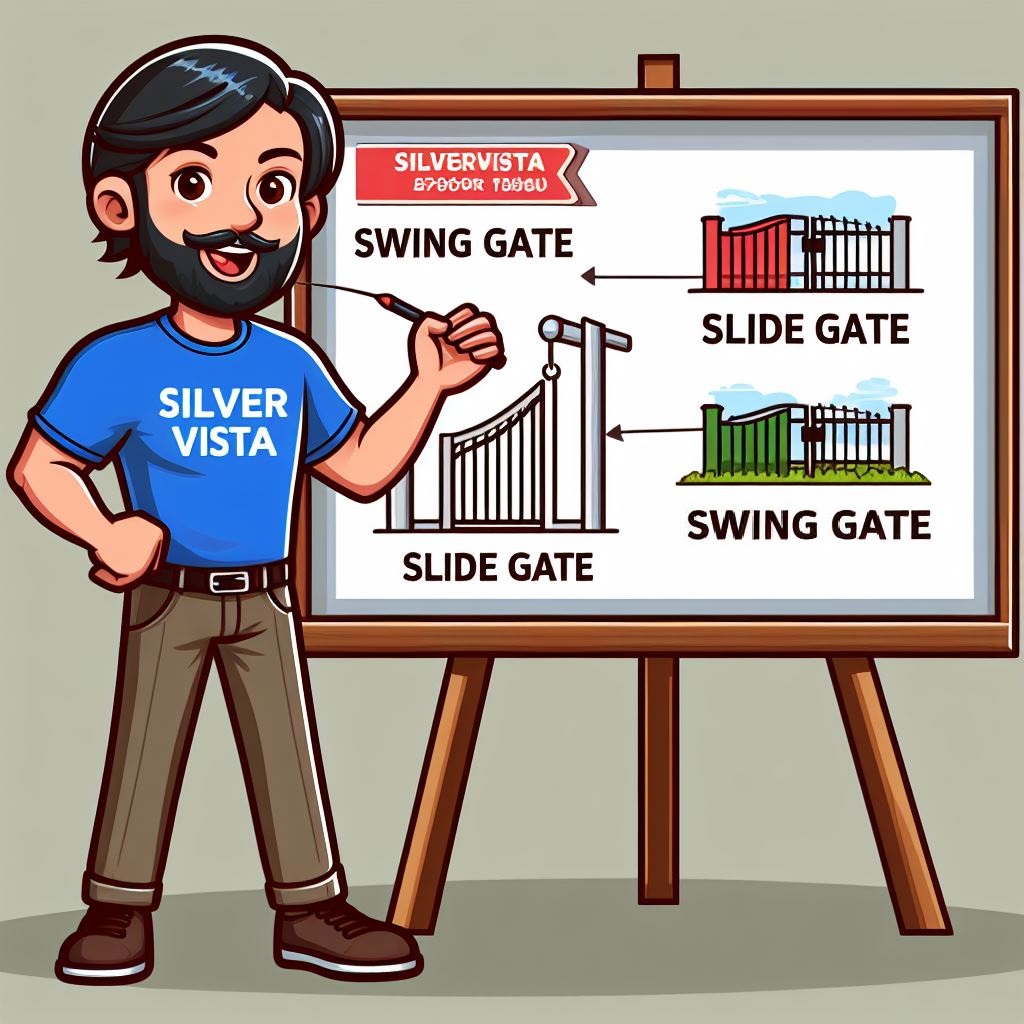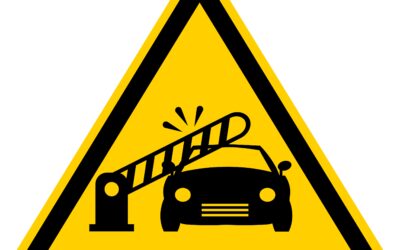Table of Contents
Introduction
In today’s world, security is a top priority for homeowners main gate design. One essential component of a secure home is a reliable gate motor. Choosing the right gate motor can ensure the safety and convenience of your property. However, with various types, power options, and features to consider, it can be overwhelming to make an informed decision.’s why we’ve created this comprehensive guide to help you choose the right gate motor for your home.
Understanding the Importance of Choosing the Right Gate Motor for Main Gate Designs
The gate motor is the heart of your automated gate system. It determines how your gate opens and closes, which affects the security, functionality, and overall performance of your main gate design. Selecting the right gate motor is crucial to ensure smooth operation, longevity, and peace of mind.
Factors to Consider Before Making a Decision

Before diving into the different types of gate motors, there are a few essential factors you should consider:
- Gate Size and Weight: Different types of gate motors are suitable for specific gate sizes and weights. It’s important to know the dimensions and weight of your gate to choose a motor that can handle it effectively.
- Frequency of Use: Consider how often your gate will be opening and closing throughout the day. If you have heavy traffic or multiple vehicles accessing your property, you’ll need a motor that can handle the frequent operation.
- Security Requirements: Determine the level of security you need for your property. Some gate motors offer advanced security features such as anti-tamper mechanisms and intruder alarm systems. Assess your security needs to make an appropriate choice.
- Budget: Gate motors come in a range of prices, so it’s important to define your budget before exploring options. Keep in mind that while affordability is important, investing in a durable and reliable gate motor will save you money in the long run.
The Purpose of this Guide
This guide aims to provide you with a comprehensive understanding of different gate motor types, power options, and essential features to consider. By the end, you will have the knowledge needed to make an informed decision. Let’s begin!
1: Types of Gate Motors
There are various types of gate motors available, each suited for different gate configurations and functionalities. Let’s explore some of the most common options:
1.1: Swing Gate Motors
Swing gate motors are popular for their traditional and elegant appearance. They operate by swinging the gate open or closed like a door. Here are some key points to consider about swing gate motors:
- How Swing Gate Motors Work: Swing gate motors use an arm connected to the gate, which opens and closes it by pivoting on hinges.
- Pros and Cons of Swing Gate Motors:
- Pros: Swing gate motors are suitable for various gate sizes, offer a wide range of designs, and are generally more affordable compared to other options.
- Cons: They require enough open space for the gate to swing inward or outward, and the opening and closing process can be slower compared to other types.
1.2: Sliding Gate Motors
Sliding gate motors are ideal for properties with limited space or inclined driveways. Instead of swinging open, they slide horizontally to open or close. Consider the following about sliding gate motors:
- How Sliding Gate Motors Work: Sliding gate motors operate by moving the gate along a track or rail system, either mounted on the ground or overhead.
- Pros and Cons of Sliding Gate Motors:
- Pros: Sliding gate motors are suitable for properties with limited space, offer a smooth and quiet operation, and are generally quicker than swing gate motors.
- Cons: They require proper installation and alignment of the track system, and the gate’s weight can affect the motor’s performance.
1.3: Overhead Gate Motors
Overhead gate motors are an excellent option for properties where space is limited and a clean aesthetic is desired. These motors lift the gate overhead, similar to a garage door. Consider the following about overhead gate motors:
- How Overhead Gate Motors Work: Overhead gate motors use a mechanism to lift the gate vertically into a horizontal position above the driveway.
- Pros and Cons of Overhead Gate Motors:
- Pros: Overhead gate motors save space, provide a sleek appearance, and are suitable for properties with limited clearance.
- Cons: They may require additional structural support for the gate, and proper maintenance is essential to prevent issues with the lifting mechanism.
1.4: Dual Gate Motors
Dual gate motors are designed to operate two gates simultaneously, typically in the center of the driveway. Let’s explore some important considerations for dual gate motors:
- How Dual Gate Motors Work: Dual gate motors use separate mechanisms to open and close two gates simultaneously, providing a symmetrical and convenient entryway.
- Pros and Cons of Dual Gate Motors:
- Pros: Dual gate motors offer a balanced and aesthetically pleasing entrance, with individual control over each gate.
- Cons: Proper alignment and synchronization of the gates is crucial, and the cost may be higher compared to single gate motors.
1.5: Barrier Gate Motors
Barrier gate motors are commonly used in commercial or high-security areas to control vehicular access. Here’s what you should know about barrier gate motors:
- How Barrier Gate Motors Work: Barrier gate motors raise and lower a horizontal arm or bar to control vehicle access at entry or exit points.
- Pros and Cons of Barrier Gate Motors:
- Pros: Barrier gate motors provide high-security options, effectively control traffic flow, and are suitable for properties with high vehicle volumes.
- Cons: They require sufficient space for the arm to raise and lower, and installation may be more complex compared to other gate motors.
2: Power Options for Gate Motors
Main Gate design motors can be powered by different sources, each offering unique advantages and considerations. Let’s explore the main power options:
2.1: AC-Powered Gate Motors
AC-powered gate motors are commonly used and rely on a connection to the electrical grid. Consider the following about AC-powered gate motors:
- Advantages of AC-Powered Gate Motors: AC-powered motors offer consistent power, ensuring reliable operation without concerns about battery life or charging.
- Limitations of AC-Powered Gate Motors: AC-powered gate motors may be affected by power outages, requiring a battery backup system for continued operation.
- Factors to Consider when Choosing an AC-Powered Gate Motor: Check for battery backup capabilities, blackout-proof functions, and stable power supply options to minimize interruptions.
2.2: DC-Powered Gate Motors
DC-powered gate motors are known for their energy efficiency and suitability for remote locations. Consider the following about DC-powered gate motors:
- Advantages of DC-Powered Gate Motors: DC-powered motors are energy-efficient, allowing you to reduce your carbon footprint and save on electricity costs.
- Limitations of DC-Powered Gate Motors: DC-powered gate motors rely on battery storage, requiring periodic maintenance and potential battery replacements.
- Factors to Consider when Choosing a DC-Powered Gate Motor: Check the battery capacity, expected battery lifespan, and recharge options to ensure reliable operation.
2.3: Solar-Powered Gate Motors
Solar-powered gate motors harness energy from the sun, offering an environmentally friendly and cost-effective solution. Consider the following about solar-powered gate motors:
- Advantages of Solar-Powered Gate Motors: Solar-powered motors are sustainable, reduce electricity costs, and provide energy independence.
- Limitations of Solar-Powered Gate Motors: They rely on adequate sunlight for charging, making them less suitable for areas with limited sun exposure or frequent cloudy days.
- Factors to Consider when Choosing a Solar-Powered Gate Motor: Assess the solar panel capacity, battery backup capabilities, and any restrictions for installation due to shading or orientation.
3: Essential Features to Look for in Gate Motors
Apart from the type and power source, gate motors come with various features aimed at enhancing security, convenience, and durability. Let’s discuss some essential features to consider:
3.1: Safety and Security Features
Ensuring the safety and security of your property should be a top priority when choosing a gate motor. Consider the following:
- Importance of Safety and Security Features: Gate motors should be equipped with safety features to prevent accidents and security features to deter intruders.
- Essential Safety and Security Features to Consider: Look for features such as obstacle detection, safety sensors, anti-crushing mechanisms, and advanced encryption for enhanced security.
- How to Evaluate the Safety and Security of Gate Motors: Read reviews, check certifications, and consider professional opinions to assess the safety record and reliability of gate motor brands.
3.2: Automation and Connectivity Features
Automation and connectivity features can greatly enhance the convenience and control of your gate motor. Here’s why these features are beneficial:
- Benefits of Automation and Connectivity Features: Automation allows you to open and close your gate effortlessly, while connectivity enables remote operation and monitoring.
- Common Automation and Connectivity Features: Look for features such as remote control access, smartphone integration, voice commands, and integration with smart home systems.
- Factors to Consider for Automation and Connectivity: Assess compatibility with your existing smart devices, ease of setup and integration, and the availability of tech support.
3.3: Durability and Maintenance Considerations
Investing in a durable gate motor will save you time, money, and frustration in the long run. Consider the following for maintenance and durability:
- Importance of Durability and Maintenance: Gate motors are exposed to various weather conditions and operational stresses, so durability and regular maintenance are essential.
- Factors Affecting Durability and Maintenance: Consider factors such as the motor’s construction, quality of materials, weatherproofing, and the availability of spare parts.
- Tips for Maintaining Gate Motors: Follow the manufacturer’s maintenance guidelines, perform periodic checks on moving parts, lubricate components as needed, and clean any debris or obstructions.
4: Summary
In this guide, we explored the different types of gate motors, including swing, sliding, overhead, dual, and barrier gate motors. We also discussed the importance of considering power options such as AC, DC, and solar-powered gate motors. Finally, we examined the essential features to look for in gate motors, including safety and security features, automation and connectivity features, and durability and maintenance considerations.
By understanding these factors, you can make an informed decision when choosing the right gate motor for your home.
5: FAQs: Frequently Asked Questions
1) Will a gate motor work during a power outage?
Most gate motors have a battery backup system which allows them to operate during power outages. However, it is essential to verify this feature before making a purchase.
2) Can I install a gate motor myself or should I hire a professional?
While some gate motors come with DIY installation options, it is generally recommended to hire a professional to ensure proper installation and avoid any potential issues.
3) How often should I perform maintenance on my gate motor?
Regular maintenance is crucial to ensure the longevity and reliability of your gate motor. It is recommended to perform maintenance checks at least once every six months or as per the manufacturer’s guidelines.
4) Are gate motors noisy?
The noise level of gate motors can vary depending on the type and quality of the motor. However, many modern gate motors are designed to operate quietly, providing a peaceful environment for your home.
5) Can I connect my gate motor to a smart home system?
Yes, many gate motors are compatible with smart home systems, allowing you to control and monitor your gate remotely using your smartphone or other smart devices.




0 Comments